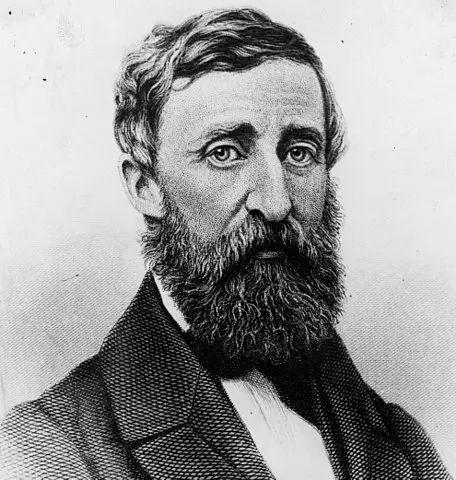The Transcendentalists
The Transcendentalists also referred to as American Transcendentalism was a new philosophy developed in the United States in the early and mid-19th century. Their ideas were rooted in beliefs that people and nature were filled with goodness. They believed people were their best when independent and self-reliant. They believed society and institutions had corrupted people.
Transcendentalists thought imagination and intuition brought knowledge to people more so than senses or logic. They accepted these principals in understanding life relationships and not as religious beliefs. Transcendentalist included famous people like Ralph Waldo Emerson, Henry David Thoreau, and Margaret Fuller, and early feminist.

How did transcendentalism start?
Transcendentalism started in New England around the Boston area in the early 1800s. The philosophy was related to Unitarian views taught at the Harvard Divinity School. Unitarianism was seen as producing liberal Christians that stressed reason, intellectualism, and rationality. Transcendentalists did not outright reject Unitarianism but rather believed the material world and rationality transcended spirituality.
The Transcendental Club
The Transcendental Club was formed in 1836 in Cambridge, Massachusetts. The club met at the home of George Ripley, Unitarian minister and included people like Ralph Waldo Emerson, George Putnam, and Margaret Fuller. The group would meet more than 30 times over the next four years. After which the group was instrumental in developing The Dial, a publication that dealt with Transcendentalists thoughts and concerns.
In 1836 Ralph Waldo Emerson published his essay Nature which presented the views of Transcendentalist philosophy during the meetings. His essay outlined how God was found in nature and spending time in nature led people to be close to divinity. Emerson’s other essay Self-Reliance defended individualism and stressed personal responsibility and nonconformity.
Other important Transcendentalists
There were other famous Transcendentalists at the time. Henry David Thoreau wrote about wildlife for The Dial. When the publication stopped in 1844 he moved to Walden Pond where he wrote Walden also known as Life in the Woods.
Margaret Fuller was an editor for The Dial from the beginning. After the publication ended she wrote Woman in the Nineteenth Century.The publication was an early piece of work outlining the feminist movement. The essay also laid the ground work for the 1848 Seneca Falls Convention which was the first conference in the United States dedicated to women’s rights.
Important facts about Transcendentalists
- The Transcendental Movement began in the New England region around Boston, Massachusetts in the early 1800s.
- Transcendentalists believed people and nature were filled with goodness. They believed society and institutions had corrupted people. They stressed people were their best when independent and self-reliant.
- The Transcendental Club was formed in 1836 and lasted four years.
- Famous members of the Transcendental Club were Ralph Waldo Emerson, Henry David Thoreau, and Margaret Fuller.
- The club published The Dial which outlined the thoughts of Transcendentalism and their meetings.
- Margaret Fuller was an editor for The Dial and Henry David Thoreau wrote about wildlife.
- Ralph Waldo Emerson published the essay Nature that stressed God was found in nature. His later essay named Self-Reliance defended individualism.
- Margaret Fuller was instrumental in 1848 Seneca Falls Convention which was dedicated to women’s rights and feminism.
Questions
Which Transcendentalist wrote the essay named Nature?
Ralph Waldo Emerson
What was the name of the publication started by Transcendentalists?
The Dial
What was the core philosophy behind Transcendentalism?
Self-reliance and nature led to good people
Where did the Transcendental Club meet?
Boston, Massachusetts
Besides Ralph Waldo Emerson, what other famous American author was a Transcendentalist?
Henry David Thoreau
was a debate between people believing religion concentrated on emotional experiences and opponents that respected reason for a religious method. The latter were known as liberal Christians. They did not believe the trinity of father, son, and Holy Ghost existed and Jesus Christ was a mortal person. Later the liberal Christians were called Unitarians. The Transcendentalists of the group broke away from the Unitarians and believed more in Romanticism as a way to fulfill a spiritual experience.



